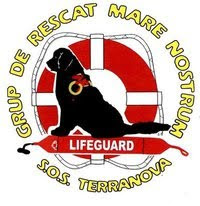Sunday, September 3, 2023
Ship Carrying Newfoundland Dog That Sank Over 140 Years Ago Found In Nearly Pristine Condition With Crew’s Possessions Still Present
(New York Post - September 2, 2023)
"The schooner Trinidad was discovered 270-feet deep in Lake Michigan off the coast of Algoma, Wis., by historians Brendon Baillod and Bob Jaeck.
'The wreck is among the best-preserved shipwrecks in Wisconsin waters with her deck-house still intact, containing the crew’s possessions and her anchors and deck gear still present,' they said in a statement.
The boat sank in the lake in 1881. Baillod and Jaeck found it in July, using survivor accounts and historical records, then side-scan sonar, to home in on the vessel’s location.
Despite the passage of time, the vessel was in nearly pristine condition: the ship’s wheel was found on the seafloor without a piece missing. The main portion of the boat was intact, with the poles detached. The deck house only had a nick in the roof, but the main structure remained largely untouched.
The 140-foot schooner – similar to a sailboat with extra sails – was primarily used in the grain trade between Milwaukee, Chicago, and Oswego, New York.
It’s final journey occurred May 11, 1881, as the Trinidad was carrying coal to Milwaukee and suffered a leak while traveling through the Sturgeon Bay Ship Canal. The boat sank 10 miles off the coast of Algoma, 'taking all the crew’s possessions and the captain’s pet Newfoundland dog with her,' according to the news release.
Captain John Higgins believed the hull had been damaged while the ship traversed ice fields in the Straits of Mackinac.
All nine passengers – including the captain – survived. They rowed eight hours in the yawl boat to shore.
The original owners of the boat did not maintain it, causing its value to plummet. Insurance records show the Trinidad being valued at $22,000 in 1867, but by 1878, it was only worth half of that, Baillod said in a news release.'
The hull had begun to leak and the captain nearly died when a block fell from the rigging. By 1879, the boat was no longer fit for carrying grain cargoes and it was sold.
By May 1880, the boat was commissioned to to take coal to the mines on Silver Islet in Lake Superior – a route the older vessels had never taken. It struck a reef on its way to the pier, tearing out 10 feet of the bottom.
The boat was hastily salvaged and put back into service, Baillod said.
It was sent out for what was supposed to be its final voyage, but the captain stopped halfway to wait out the winter. It sank shortly after resuming its journey.
Baillod and Jaeck started their search for the Trinidad – which was built in New York in 1867 – two years ago. Baillod became interested in the shipwreck while constructing a database of all the known shipwrecks in Wisconsin waters, Baillod said.
The historians believed the shipwreck 'ticked all the boxes' for discovery, as the crew had given a good description where the Trinidad sank and the boat sank slowly – meaning there was a good chance it was still in one piece.
After referring to historical ship lane records, alongside the crew’s description of where it sank, Baillod was able to determine a search area of roughly one-third of a mile.
They nearly missed the wreck on the sonar, but after going over the area again, they discovered the ship.
A second team confirmed the wreck after taking measurements of the hull.
The two historians are working with the Wisconsin Historical Society to nominate the site as a National Register of Historic Places."
Subscribe to:
Post Comments (Atom)













































No comments:
Post a Comment